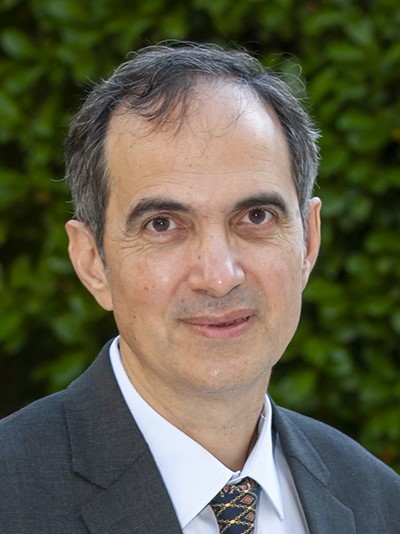

In this article, Prof. François Longin (ESSEC Business School, Finance Department) and Adrian ZICARI (ESSEC Business School, Accounting Department) discuss the 3R approach for research. A longer version of this post The Three Rs of Science: Relevance, Rigor, and Reach can be found in the Pedagolab blog edited by ESSEC Business School.
A perennial tension
“Ivory towers,” “detached from reality,” “endless discussions.” Such critiques of academic research are familiar—and often deserved. The tension between rigor and relevance is not new. It runs through the daily life of researchers, educators, and citizens.
This paradox is beautifully illustrated in Jorge Luis Borges’ short tale On Exactitude in Science, where cartographers sought to create a perfect map. Their creation was so detailed that it matched the size of the territory itself—and became useless. Rigor without relevance risks the same fate.
For us, rigor means adhering to the highest standards in research design, data collection, and analysis. Relevance, in contrast, is about asking the right questions—those that matter to society. These two objectives are often portrayed as contradictory. Academic conferences and peer review tend to reinforce rigor, while interactions with citizens, companies, and the media remind us of relevance.
Scholars have long debated this duality. For instance, Ghoshal (2005) warned that bad theories can undermine good practices, while Aram and Salipante (2003) argued that rigor tends toward the general, and relevance toward the particular. The challenge is not simply to choose between the two, but to hold them in productive tension.
Beyond rigor and relevance: the role of reach
We suggest that there is a way forward: reach. This third “R” refers to how far research travels—who it touches, and how it is translated into action. While relevance concerns the question, reach is about the answer: does it circulate beyond academic journals? Does it inform business leaders, policymakers, and communities?
An inspiring example comes from community-based research in healthcare (Balazs & Morello-Frosch, 2013), where local involvement strengthened both the methods and the impact. In management studies too, researchers are encouraged to focus on issues that resonate with them personally, making them “optimally positioned” to engage in rigorous, relevant, and far-reaching research (Jones & Bartunek, 2021).
Applying the Three Rs to CSR research
At ESSEC, we apply these principles through a corporate social responsibility (CSR) workshop using a trading simulation platform. The idea is simple but powerful: participants take on the role of traders, making buy or sell decisions based on CSR-related events such as corporate donations or changes in sustainability indices.
This gamified experiment, powered by the SimTrade platform, generates data on how individuals weigh financial versus social objectives. Are they guided only by profit maximization (shareholder view), or do they balance both profit and purpose (stakeholder view)?
Our workshops typically run in two parts:
- Simulation – participants trade in real time, reacting to CSR news.
- Debriefing – results are shared and discussed, leading to broader reflections on the role of business in society.
The format works across audiences—from undergraduates to executives—and has already been adopted by companies and financial institutions. The experiment provides us with valuable data for research, while also engaging participants in a memorable learning experience.
Recognition and next steps
Our CSR workshop received the 2024 Science & Society Prize from the ESSEC Foundation, underlining its impact at the intersection of academic research and societal debate.
For us, this project illustrates how rigor, relevance, and reach can come together. Our data is collected and analyzed with scientific care (rigor). The research question—how investors integrate CSR into decisions—is a pressing societal issue (relevance). And through workshops, publications, and discussions, our findings circulate widely among students, professionals, and policymakers (reach).
The Three Rs are not competing forces. When embraced together, they can strengthen each other—and help science live up to its promise.
Research design
You can explore our research design to see how we structure our study, collect data, and analyze corporate social responsibility and its impact on financial performance.
Resoures
Academic articles
Aram, J., and P. Salipante (2003) Bridging Scholarship in Management: Epistemological Reflections. British Journal of Management, 14(3), 189–205.
Balazs, C.L., and R. Morello-Frosch (2013) The Three Rs: How Community-Based Participatory Research Strengthens the Rigor, Relevance, and Reach of Science. Environmental Justice, 6(1), 9-16.
Ghoshal, S. (2005) Bad management theories are destroying good management practices. Academy of Management Learning & Education, 4(1), 75–91.
Jones, E., and J. Bartunek (2021) Too close or optimally positioned? The value of personally relevant research. Academy of Management Perspectives, 35(3), 335–346.
Other resources
Longin, F. and A. Zicari (2020) CSR workshop SimTrade.
Longin, F. and A. Zicari (2025) Atelier RSE avec Prof. Longin et Zicari (ESSEC Business School) YouTube.
Contact
ESSEC Business School

